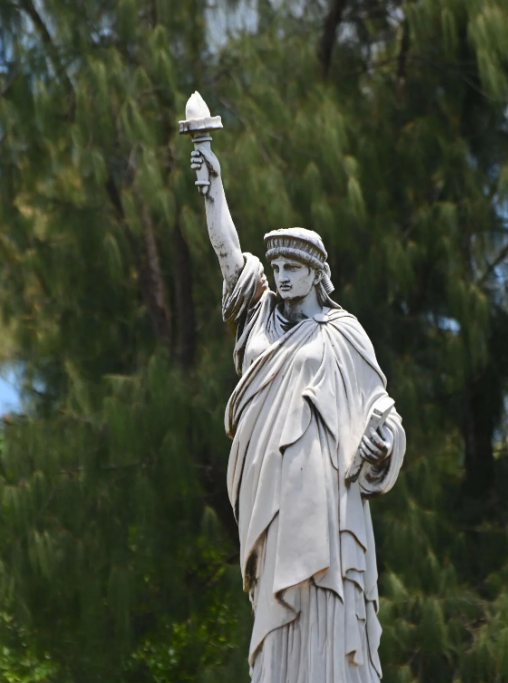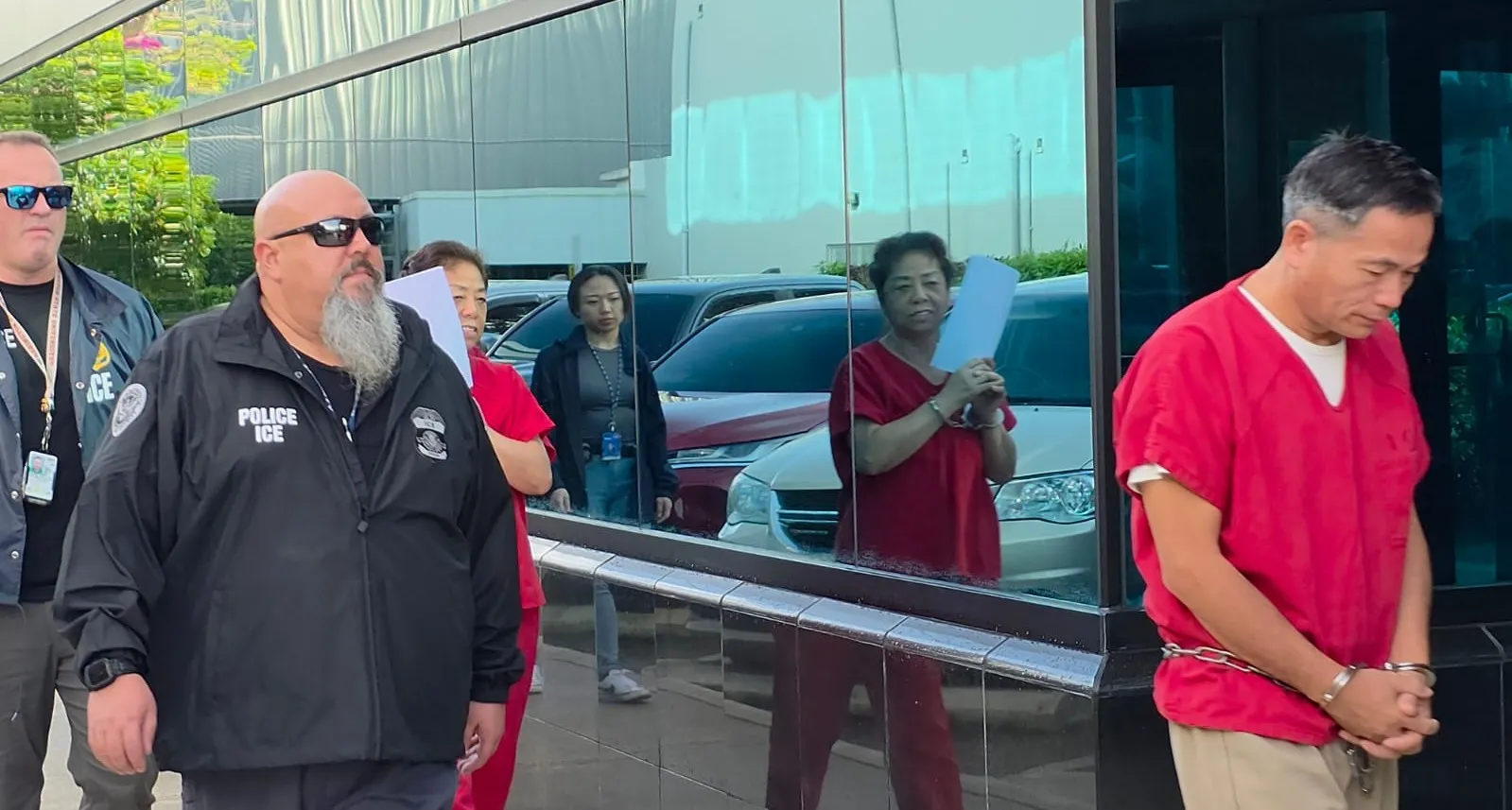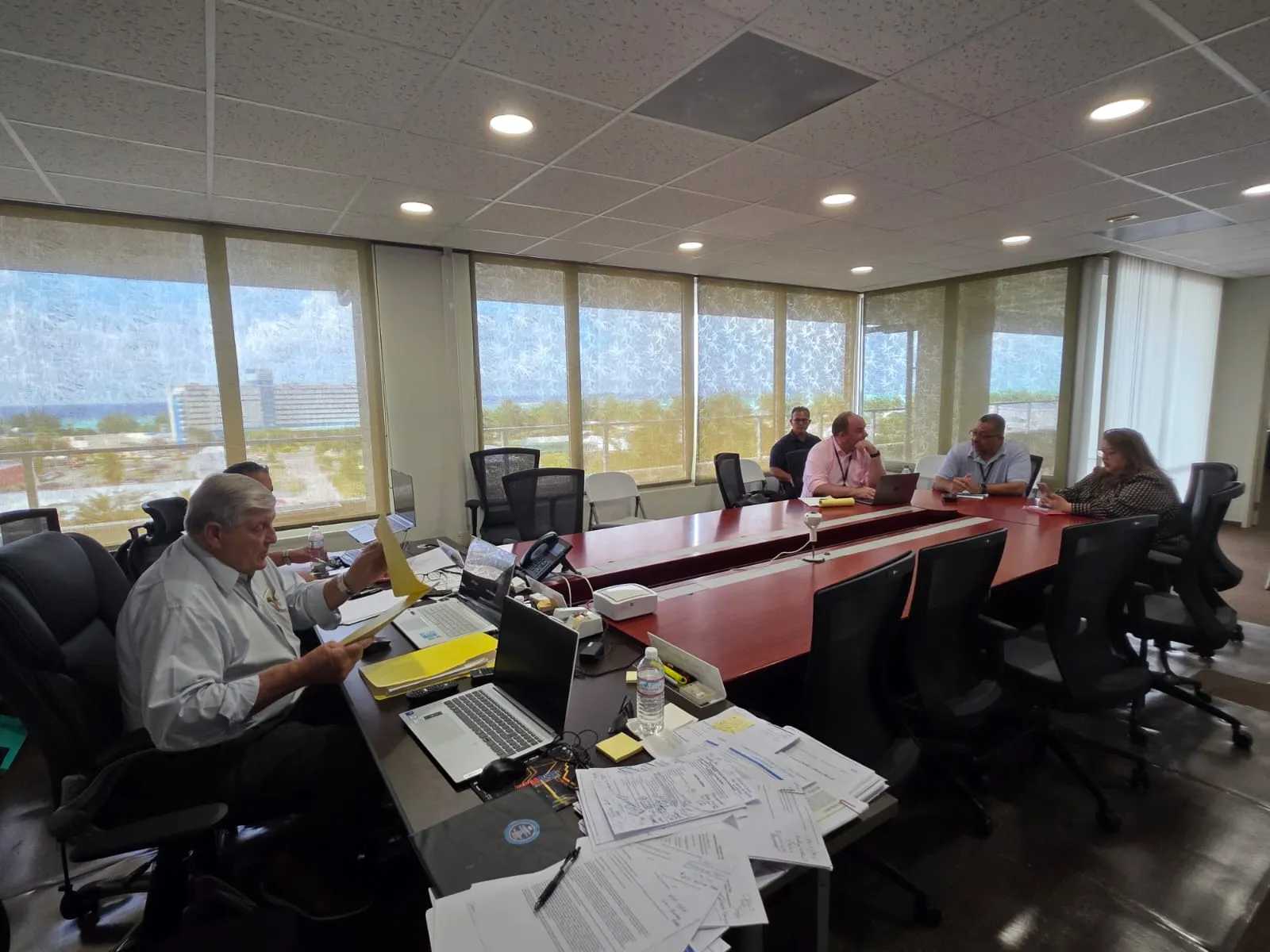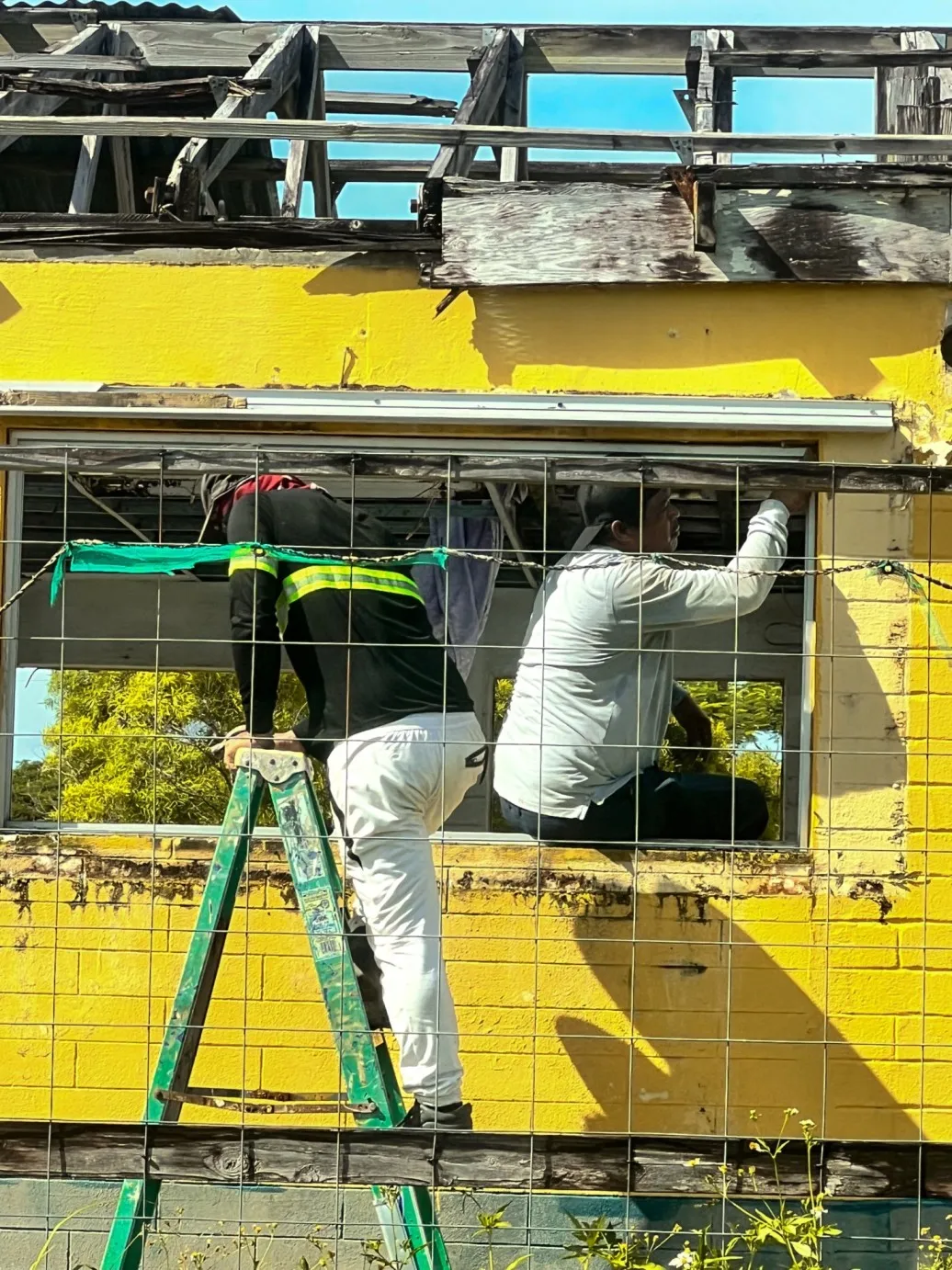HAGÅTÑA (The Guam Daily Post) — Guam officials expressed disappointment over the U.S. Supreme Court ruling that Congress is not required to extend federal disability benefits to residents of Puerto Rico and, by extension, territories such as Guam.

A replica of the Statue of Liberty is featured prominently at the Paseo de Susana Park in Hagåtña, as seen April 29, 2021.
This means about 24,000 qualifying American citizens with disabilities living on Guam will continue to be denied federal Supplemental Security Income benefits.
SSI provides monthly payments to low-income disabled and blind Americans, and those at least 65 years old.
Congress excluded residents of Guam, Puerto Rico and the U.S. Virgin Islands from this benefit program.
“This opinion carries grave consequences for our people,” Gov. Lou Leon Guerrero said, adding that it’s imperative that Guam pursue the extension of these benefits to the territories through Congress.
In an 8-to-1 ruling, the Supreme Court concluded that denying SSI payments, which, by law, are available only to residents of the 50 states and the District of Columbia, as well as the Commonwealth of the Northern Mariana Islands, does not violate the Constitution.
“This outcome is truly a sad day for Guam, but a clear call to action that the only recourse for remedy is legislative, and we look forward to pushing our initiatives forward with bipartisan support from home,” Del. Michael San Nicolas said.
Vice Speaker Tina Muna Barnes said the Supreme Court “acknowledged that the unfair treatment of the over 4 million Americans in the United States territories will continue.”
Sen. Telo Taitague said the Supreme Court ruling is a “massive blow” for U.S. citizens within the territories.
“Such a ruling imposes grave collateral damage for equal protections provided by the Constitution for Guam citizens,” she said. “We are now more entrenched than ever before as a second-class society.”
She added that this decision has a parallel impact on other federal programs such as other Social Security benefits and the Earned Income Tax Credit, defining that Guam “realistically is at the mercy of Congress.”
‘The answer is no’
The Supreme Court ruled against the bid by Puerto Rico residents to receive equal treatment under the SSI program. The case is known as United States v. Vaello Madero.
Justice Brett Kavanaugh delivered the opinion for the majority. Justice Sonia Sotomayor, who is of Puerto Rican descent, was the only dissenter.
Kavanaugh wrote that the Constitution affords Congress substantial discretion over how to structure federal tax and benefits programs for residents of the territories.
The limited question before the court, he said, is whether, under the Constitution, Congress “must” extend SSI to residents of Puerto Rico to the same extent as to residents of the states.
“The answer is no. We, therefore, reverse the judgment of the U.S. Court of Appeals for the 1st Circuit,” Kavanaugh wrote.
Just as not every federal tax extends to residents of Puerto Rico, he wrote, so too, not every federal benefits program extends to residents of Puerto Rico. He said one example is the SSI program, which Congress passed and President Richard M. Nixon signed into law in 1972.
Sotomayor wrote that there is no rational basis for Congress to treat needy citizens living anywhere in the United States so differently from others.
“To hold otherwise, as the Court does, is irrational and antithetical to the very nature of the SSI program and the equal protection of citizens guaranteed by the Constitution. I respectfully dissent,” she wrote.
The dispute in the case concerns a claim for SSI benefits by a resident of Puerto Rico named Jose Luis Vaello Madero. When he moved from New York to Puerto Rico in 2013, he was no longer eligible for SSI benefits.
Unacceptable
The Guam governor said it is “plainly unacceptable that this extension of the SSI benefit to Guam has not been adequately pursued, let alone achieved already.”
“Inclusion of NMI residents as recipients of SSI benefits underscores the potential for congressional action to extend these benefits to our people, which the Supreme Court holds today is the appropriate path for territories seeking similar benefits. These benefits are critical to the lives of many in our community,” the governor said.
She also called out San Nicolas on the issue. San Nicolas introduced legislation seeking to extend the SSI benefits to Guam, but the bill has not passed.
“Effective advocacy in Congress is necessary to enable our people to receive this lifesaving aid, and the failure of our delegate to address these long-standing issues for the advancement of our people is negligent and disappointing,” the governor said.
Vacated
The Supreme Court ruling came two days after the U.S. Court of Appeals for the 9th Circuit voided a 2020 ruling that could have paved the way for elderly or disabled Americans living on Guam to receive SSI payments.
The appeals court granted the Social Security Administration’s motion to vacate the 2020 ruling after the plaintiff, Guam resident Katrina Schaller, died last year.
Schaller died from a very debilitating genetic condition that entitled her to SSI benefits, if she were living on the U.S. mainland, Washington, D.C., or the CNMI, and not on Guam, Puerto Rico and other U.S. territories.
The SSA said Schaller’s passing makes her lawsuit moot. The appeals court agreed.
“The District Court’s June 19, 2020, judgment is vacated. Because this action seeks prospective relief only, the district court shall dismiss this action as moot given plaintiff’s death,” the U.S. Court of Appeals for the 9th Circuit said in its April 19 order.
U.S. District Court of Guam Chief Judge Frances Tydingco-Gatewood in June 2020 handed down a ruling that said denying SSI benefits to people who would otherwise qualify but don’t qualify simply because they live on Guam is discriminatory and violates the U.S. Constitution and federal law guarantees of equal protection.
The federal government appealed this ruling, but the case was paused in March 2021 because the Supreme Court was hearing the related case involving Vaello Madero in Puerto Rico.











